Berthold Auerbach - Joseph in the Snow, and The Clockmaker. In Three Volumes. Vol. I.
Здесь есть возможность читать онлайн «Berthold Auerbach - Joseph in the Snow, and The Clockmaker. In Three Volumes. Vol. I.» — ознакомительный отрывок электронной книги совершенно бесплатно, а после прочтения отрывка купить полную версию. В некоторых случаях можно слушать аудио, скачать через торрент в формате fb2 и присутствует краткое содержание. Жанр: foreign_antique, foreign_prose, на английском языке. Описание произведения, (предисловие) а так же отзывы посетителей доступны на портале библиотеки ЛибКат.
- Название:Joseph in the Snow, and The Clockmaker. In Three Volumes. Vol. I.
- Автор:
- Жанр:
- Год:неизвестен
- ISBN:нет данных
- Рейтинг книги:5 / 5. Голосов: 1
-
Избранное:Добавить в избранное
- Отзывы:
-
Ваша оценка:
- 100
- 1
- 2
- 3
- 4
- 5
Joseph in the Snow, and The Clockmaker. In Three Volumes. Vol. I.: краткое содержание, описание и аннотация
Предлагаем к чтению аннотацию, описание, краткое содержание или предисловие (зависит от того, что написал сам автор книги «Joseph in the Snow, and The Clockmaker. In Three Volumes. Vol. I.»). Если вы не нашли необходимую информацию о книге — напишите в комментариях, мы постараемся отыскать её.
Joseph in the Snow, and The Clockmaker. In Three Volumes. Vol. I. — читать онлайн ознакомительный отрывок
Ниже представлен текст книги, разбитый по страницам. Система сохранения места последней прочитанной страницы, позволяет с удобством читать онлайн бесплатно книгу «Joseph in the Snow, and The Clockmaker. In Three Volumes. Vol. I.», без необходимости каждый раз заново искать на чём Вы остановились. Поставьте закладку, и сможете в любой момент перейти на страницу, на которой закончили чтение.
Интервал:
Закладка:
CHAPTER III.
THE FIERCE RÖTTMÄNNER
"There is a fierce, savage race of men in these mountains, who are almost fiends. Many a strange tale is told of these wild Röttmänner."
"Let me hear them."
"They are great rough boors, and they pride themselves on the stories related for generations back of their prodigious strength, and as they are wealthy, they can do pretty much what they please. The father of the Röttmann, whose wife Otto is gone to-night to visit, is reported to have had so powerful a voice, that once when he shouted to a forester, the man staggered back. His chief pleasure consisted in rolling up into balls, the tin plates used at dinner at different inns. The present Röttmann, when he went to a dance, was in the habit of stuffing into his long pockets a dozen of the heavy iron axes, used for splitting wood, called Speidel by the country people, so that every one got out of his way, and left him ample space to dance. His greatest delight was to dance for twenty-four hours without stopping; this was only amusement to him, and in the pauses between the dances, he drank quart after quart of wine unceasingly. In order to ascertain, however, how much he had drunk, and what he had to pay, he tore off a button each time, first off his red waistcoat, and then off his coat, and redeemed them at the end of the evening from the landlord. His old father, with the stentorian voice, once forbad him to remain all day at a wedding at Wenger, but, on the contrary, enjoined on him to mow down a grass meadow in the valley of Otterzwang. The Röttmänner have always enforced the strictest discipline among themselves. The obedient son followed his father's injunctions. Danced like mad all night, and in the morning, the loud voiced father, coming into the meadow, heard music, 'What is that? a man mowing, and he looks so strange?' The father comes nearer, sees his son mowing busily according to his orders, but carrying a basket on his back, and in the basket a fiddler, playing indefatigably, till the meadow was mown from end to end, and then he danced back to the Wenger wedding with the fiddler on his back. There is a proverb, that anything may be stolen, except a mill-stone and a bar of red-hot iron; but Speidel-Röttmann did once steal a mill-stone, or at least displace it. Wishing to play a trick to the forest-miller, he rolled the mill-stone one night half-way up the hill. Speidel-Röttmann had two sons, Vincent and Adam; the eldest, Vincent, was not particularly strong, but as sharp and spiteful as a lynx; a quality he inherited from his mother, for the Röttmanns, though untamed and fierce, are not malicious. It seems that Vincent tormented the wood-cutters like a slave-driver. One day he was killed by the falling of a tree. It was said, and the former clergyman always declared it was so, that the wood-cutters had killed him on purpose. Since that day the mother, who never, was of a kindly nature, has become a perfect dragon, and would gladly poison every one. She is the only person who cordially hates my husband, for she wished him to question closely every dying peasant to whom he might be summoned, whether he had anything to confess with regard to Vincent's murder. The tree that caused Vincent's death lay long untouched in the wood, but one day the Röttmännin gave orders that its branches should be lopped off. She hid herself, unperceived by the wood cutters, in order to watch them, and to listen to all they said, but she got no information. Speidel-Röttmann, as the trunk was the finest tree in the forest, wished to send it floating down the Rhine, for he said, – 'a tree is a tree, and money is money; why should the tree be left to rot on the ground, because it chanced to cause Vincent's death?' His wife, however, was of a different opinion. She collected the branches into a great heap, to which she set fire, and burned the clothes of the dead man in it, shouting out, 'May those who murdered my Vincent, burn hereafter like these clothes in this bonfire!' Six horses and ten oxen tried to drag the tree into the courtyard of the house, but they could only move it a little way, for the roads are not good enough to admit of so huge a tree being dragged up hill. It was, therefore, sawn into three pieces, and these three monstrous logs are still lying in the court, close to the door. The Röttmännin always declares that the tree is waiting till a gallows and a funeral pile are required, to hang and to burn the murderer of her Vincent. She often sits at the window, muttering to the logs of wood, as if telling them some secret; and when she sees any stranger tumble over them, she laughs with delight. She also caused a group of figures to be erected, in memory of the murdered man, close to the footpath which leads down from Hohlzobel to the forest mill, though this is a custom peculiar to Catholics alone in our neighbourhood. Yonder, deep in the centre of the wood, Vincent met his death. The only son left is Adam, and she uses him worse than a step-child; it is said, that she beats him as if he were still a child, and he makes no resistance, though he has already proved that he is a genuine Röttmann, and won a singular title, for he is known in the whole country as The Horse . He went once to get his horse shod by the smith, whom he found bargaining with a Briesgau peasant about the exchange of a horse: the horse was harnessed to a large two-wheeled waggon, laden with sacks of peas. The Briesgau peasant said: 'There is not such a horse in the world, he is drawing a load that would require three common horses to draw.'
"'Oh! ho!' exclaimed Adam, who was standing by, in so loud and gruff a voice that the Briesgauer tumbled right over his load, but luckily fell against his horse. 'Oh! ho! I will make you a bet that I carry the waggon and the peas in three loads to the Crown inn yonder. Will you conclude the bargain, if I succeed in doing this?'
"'I will – done!' said the peasant.
"The horse was taken out of the waggon, Adam filled a large counterpane with the peas and carried them to the inn, and then, seizing the framework of the cart, he carried it in the same way to its destination; and, finally, took the two great wheels on his shoulders, and deposited them in the inn-yard: 'Which is the strongest, your horse or I?' asked he of the peasant; and this is why he is called The Horse .
"The manner in which Speidel-Röttmann made known his son's extraordinary feat of strength shows his vainglorious, boasting disposition: he is far from being a bad man, only a swaggerer of the first class. The day after Adam's bet there was a fair in the town, and the smith from our village met Speidel-Röttmann at an inn, and related the circumstances I have told you. Speidel-Röttmann said, 'I will give you a bottle of the best wine in this cellar, if you will go down to the street, and shout to me up at the window the story you have just told me;' and so he did. Speidel-Röttmann leant at his ease on the window-cushion, and all the people listened in amazement to the story the smith was shouting out. Speidel-Röttmann is very fond of his son, and very proud of him, but he dare not venture to show this before his wife, more especially for the last seven years.
"Yonder, above the ford – we can see the cottage from our window – lives a Schilder, or wood-turner, nicknamed Schilder-David. He is a worthy man, though one of the poorest in the village, but he would rather starve than accept of assistance from any one. Moreover, he is a great searcher of Holy Writ. Light is seen later in his cottage than in any other house in the village, and that is very significant for so poor a man. He has a Bible, that he has read through sixteen times, from the first syllable to the last, both of the Old and the New Testament. I saw the Bible once, and the leaves looked very much crumpled and worn, for David always reads with four fingers on the page. On the first leaf of the Bible he regularly marks down the date when he begins to read it afresh, and the day when he has read it through. The longest period is rather more than two years; three times, however, he read it from beginning to end within the year; that was when his three daughters emigrated; another time, when his hand was so severely injured, that it was thought it must be amputated; and, last of all, the year in which his grandson Joseph was born. In his youth, he is said to have been very jovial and merry, and he knew every kind of song, and once, by his singing, he got a stock of firewood. On one occasion, he came to the father of Speidel-Röttmann to buy wood: Old Röttmann, being in good humour, said, 'David, for every song you sing me I will give you a Klaft or bundle of wood, and I will send it to your house for you – so, that's a bargain.' David sung so many songs, that he sung two cartloads of wood into his house; therefore, he is called Klafter-David – but he does not like to be reminded of that name now-a-days.
Читать дальшеИнтервал:
Закладка:
Похожие книги на «Joseph in the Snow, and The Clockmaker. In Three Volumes. Vol. I.»
Представляем Вашему вниманию похожие книги на «Joseph in the Snow, and The Clockmaker. In Three Volumes. Vol. I.» списком для выбора. Мы отобрали схожую по названию и смыслу литературу в надежде предоставить читателям больше вариантов отыскать новые, интересные, ещё непрочитанные произведения.
Обсуждение, отзывы о книге «Joseph in the Snow, and The Clockmaker. In Three Volumes. Vol. I.» и просто собственные мнения читателей. Оставьте ваши комментарии, напишите, что Вы думаете о произведении, его смысле или главных героях. Укажите что конкретно понравилось, а что нет, и почему Вы так считаете.












